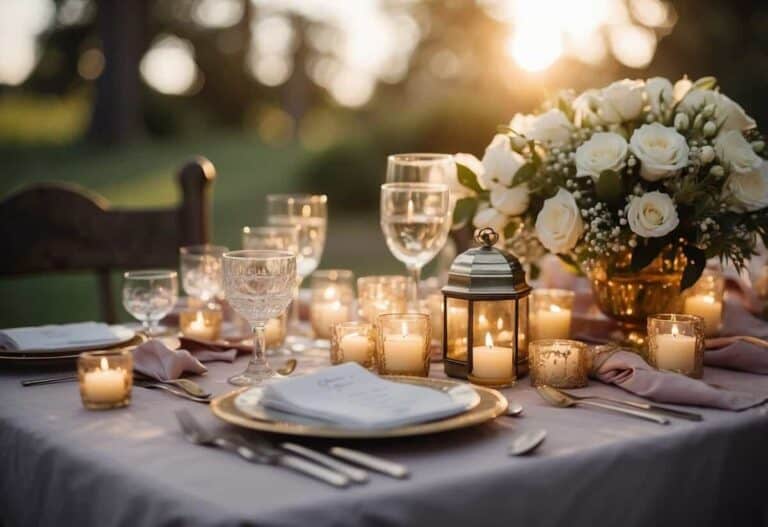Wedding Officiant Tips: Making Your Ceremony Unforgettable
Being a wedding officiant is a special honor and a big responsibility. Whether it’s your first time or you’re looking to improve your skills, there are many tips that can help you create a memorable ceremony. You’ll find that preparing well and knowing what to expect can make the experience much smoother and enjoyable for everyone involved.
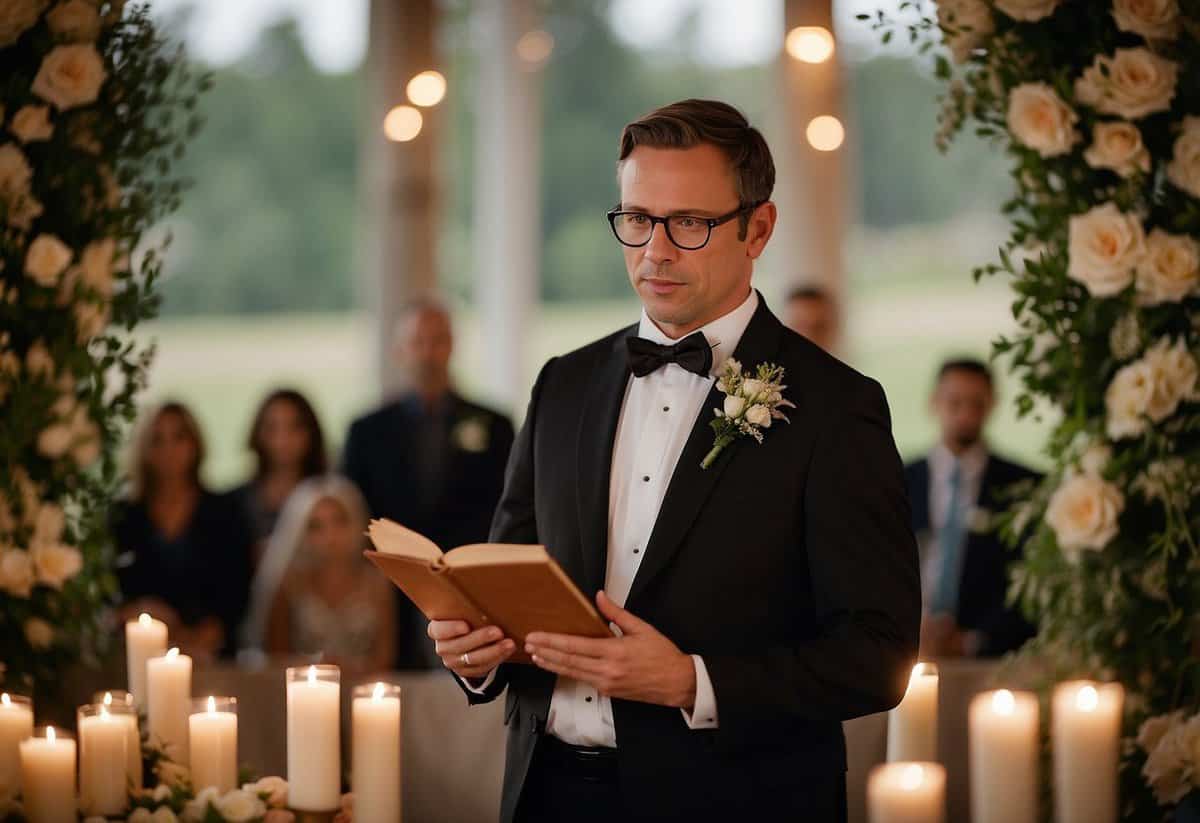
A great officiant sets a positive tone for the wedding and ensures the couple feels supported. It’s about more than just reading vows—it’s about bringing the couple’s vision to life and managing the flow of the ceremony. By focusing on these aspects, you can make sure the wedding day is as special as the couple deserves.
1) Plan the Ceremony Together

It’s important to plan the ceremony with the couple. Start by asking them what kind of ceremony they envision. Do they want a traditional or modern feel? Make sure to discuss any special rituals or traditions they would like to include.
Meet with the couple multiple times. These meetings help you understand their preferences and personalities. It also ensures that everyone is on the same page.
Encourage the couple to write their own vows if that’s what they want. Ask for a copy of their vows ahead of time. This helps you understand their style and prepare for the flow of the ceremony.
Work together to create a timeline. This includes the sequence of events and any cues for music or readings. This preparation ensures the ceremony goes smoothly and everyone involved feels confident.
2) Personalize the Vows
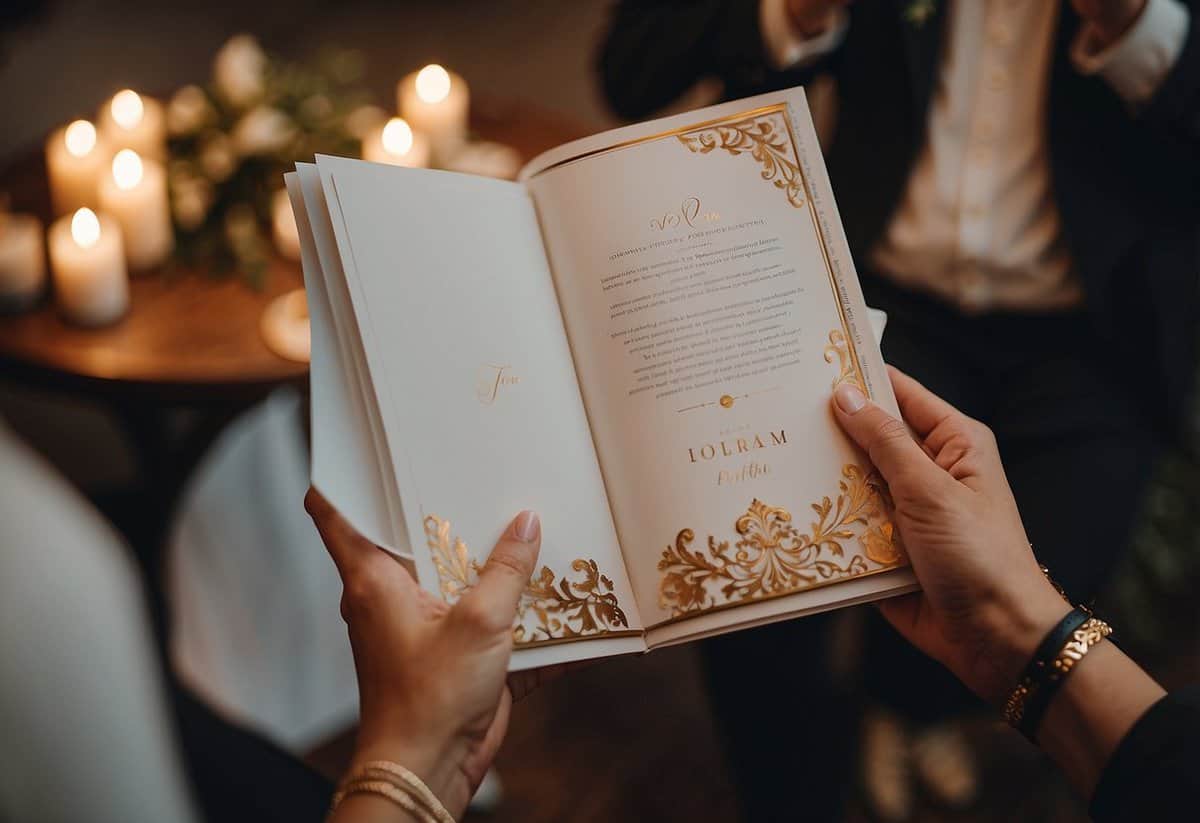
Personalizing the vows can bring a special touch to any wedding ceremony. Encourage the couple to include anecdotes that reflect their unique journey and relationship.
Suggest they focus on meaningful moments. This could be the day they met, their first trip together, or a shared inside joke.
Ask them to speak from the heart. Genuine words often resonate more than generic promises. Remind them to consider the future they envision together and express it in their vows.
Encourage them to use their own language and style. This makes the vows feel more authentic and true to their personalities.
Personalized vows not only create a heartfelt atmosphere but also leave a lasting impression on everyone present.
3) Consult Legal Requirements

Before officiating a wedding, you need to know the legal requirements. Each state or country has different rules, so it’s important to research them.
Check if you need to register with local authorities. Some places require officiants to file paperwork before the ceremony.
Make sure the couple has obtained their marriage license. Without it, the marriage won’t be legally binding. You will also need to sign this license after the ceremony.
Remember to return the signed marriage license to the issuing office. This step is crucial to make the marriage official.
By following these steps, you’ll ensure that the wedding is legally recognized.
4) Rehearse Thoroughly
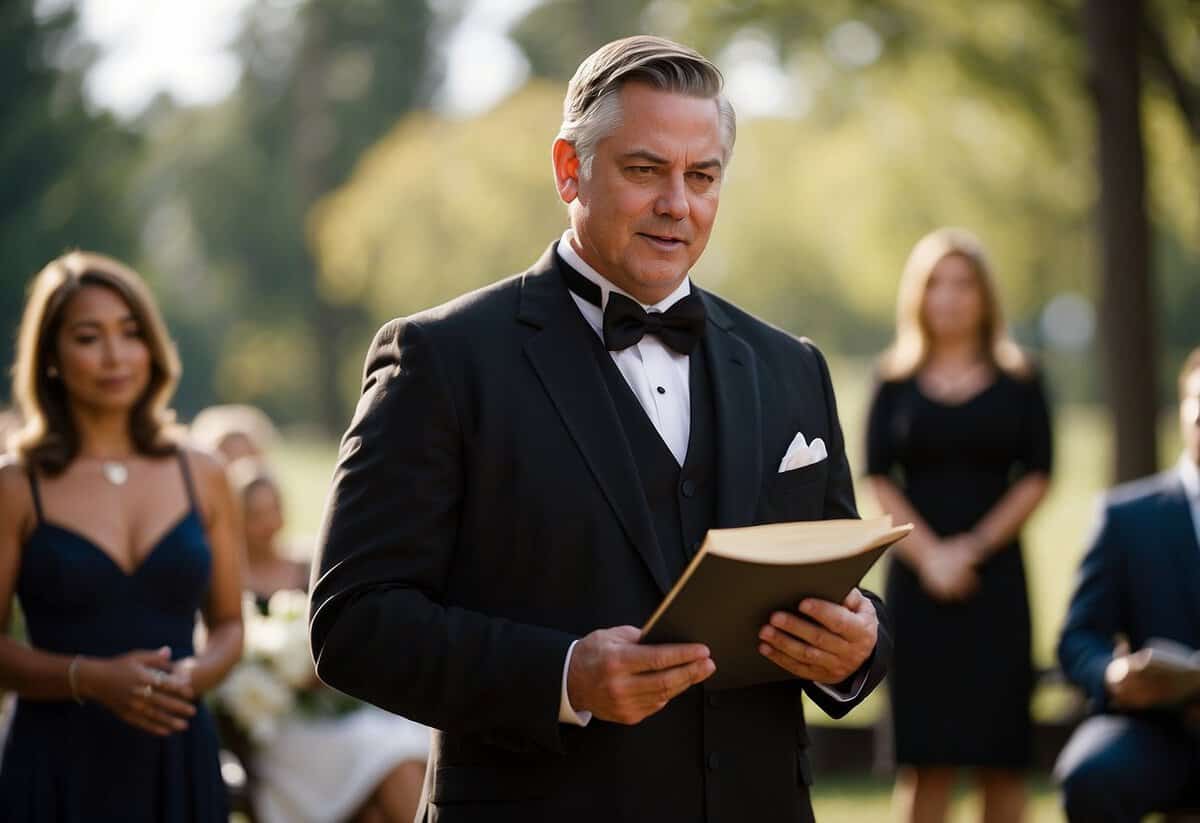
Rehearsing the wedding ceremony thoroughly is key to ensuring everything runs smoothly on the big day.
Start by gathering everyone involved in the ceremony: the couple, wedding party, and any family members who have roles.
Practice the processional, making sure everyone knows when to walk and where to stand.
Go over the ceremony steps, from readings and vows to any rituals you will include.
Encourage participants to ask questions if they are unsure about their roles.
Practice the recessional, so everyone knows how to exit gracefully. Rehearsing helps build confidence and ease nerves.
Time the rehearsal to ensure that the ceremony sticks to the planned schedule.
5) Keep a Backup Copy of the Vows
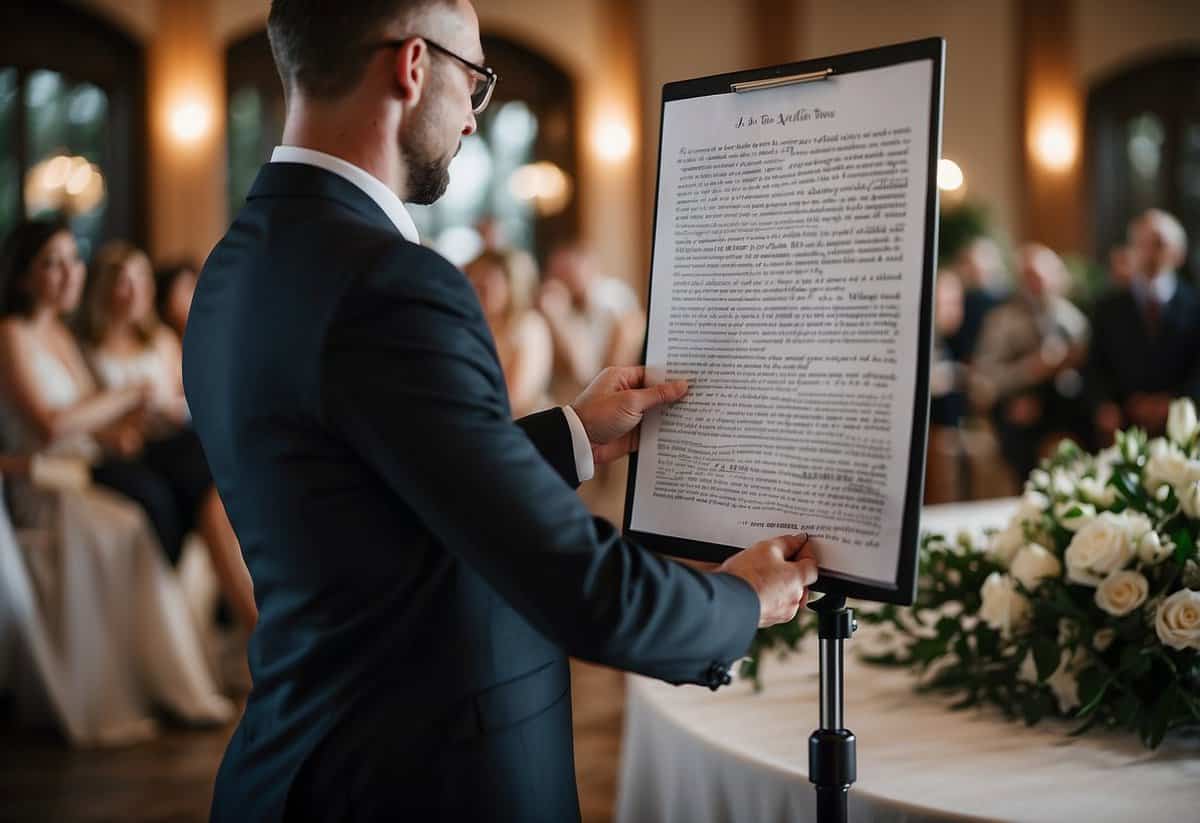
Always have a backup copy of the couple’s vows. This can save a lot of stress if someone forgets or loses their original copy. Bring a printed version just in case.
You could also ask the couple to email you their vows. That way, you have a digital copy you can print if needed. Having this backup shows your careful preparation.
Sometimes emotions run high, and people might forget their lines. Your backup copy will help the ceremony run smoothly. Just remember to keep it easily accessible during the event.
6) Coordinate with Other Vendors
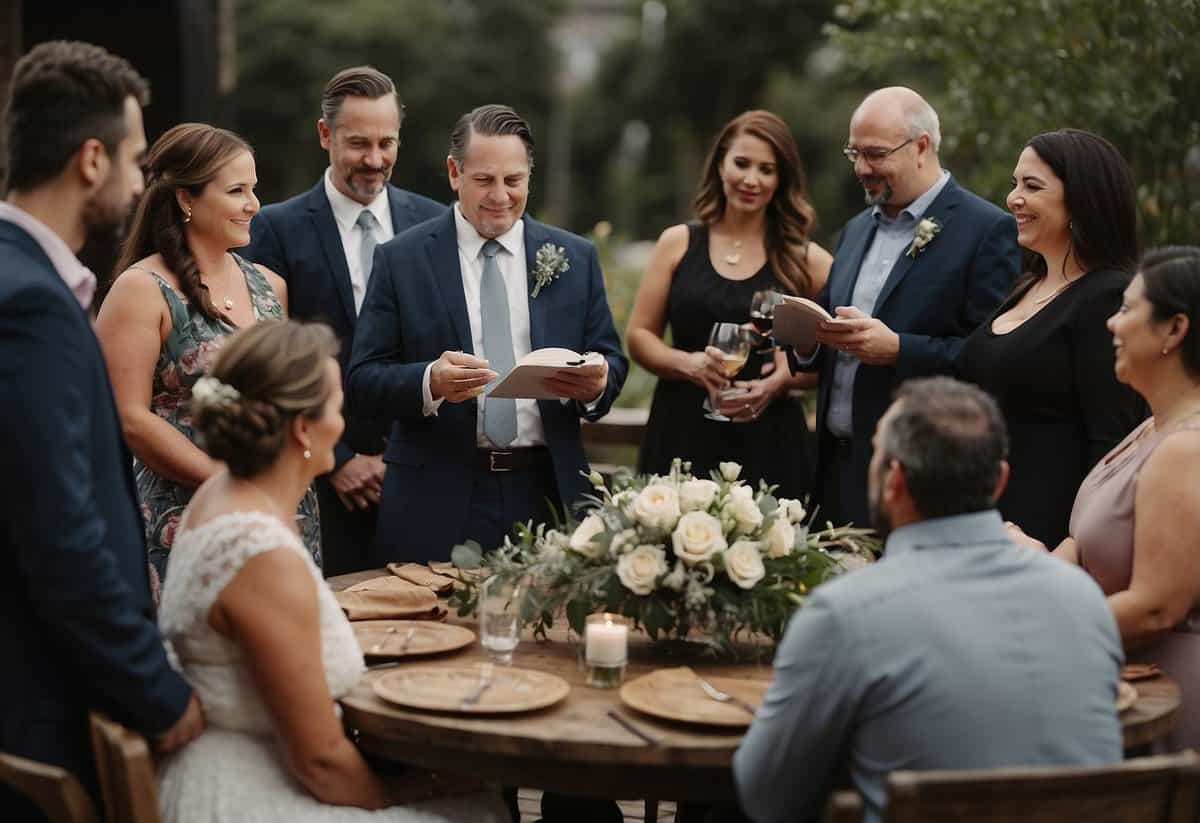
It’s important to stay in touch with other vendors. Make sure you arrive early on the wedding day. This allows time to meet with the photographer, caterer, and other key people.
Check in with the wedding planner, if there is one. This helps everyone stay on the same page. Discuss any last-minute changes or special requests.
Doing a mic check with the sound person can avoid hiccups during the ceremony. This also gives you a chance to get comfortable with the equipment.
Working smoothly with other vendors helps the day go well. Everyone will appreciate your cooperation, and the couple will have a smoother experience.
7) Ensure Clear Sound System

Make sure the microphones are working properly. Test them before the ceremony to avoid any glitches. A lapel mic for the officiant is a great choice because it keeps their hands free and picks up the voice well.
Check the volume levels for each microphone. Adjust them so everyone can hear clearly, but not so loud that it distorts. Pay attention to any feedback and adjust the equipment as needed to prevent it.
Think about the placement of the speakers. They should be positioned to cover the entire audience without creating echo or overpowering anyone in the front rows.
If possible, have someone monitor the sound throughout the ceremony. This helps quickly fix any issues that might come up. A clear sound system ensures that everyone can enjoy and remember the special moments.
8) Incorporate Personal Stories
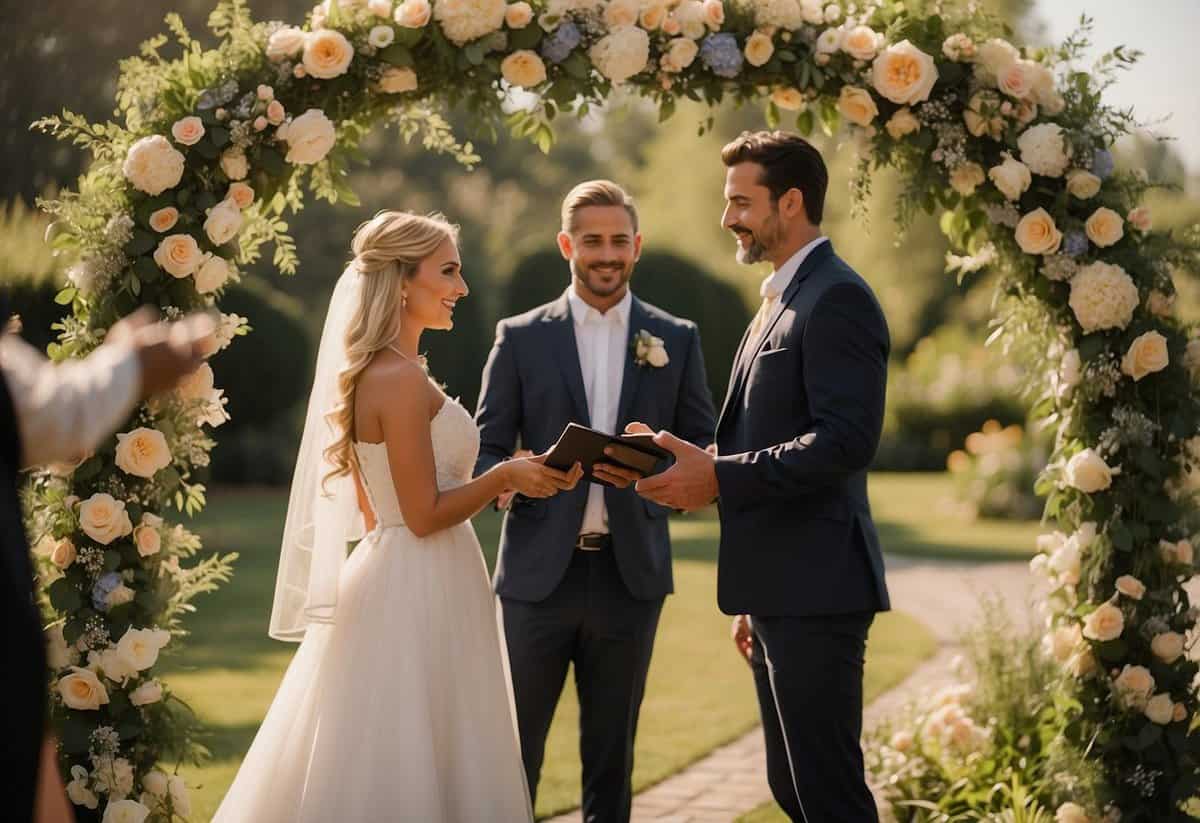
Adding personal stories can make your wedding officiant speech special.
Start by thinking about the couple’s love story. How did they meet? What are some memorable moments they’ve shared?
You can also include stories from friends or family. These anecdotes can bring a touch of humor and warmth to your speech.
Keep the stories short and to the point. This will keep the audience engaged and make the ceremony flow smoothly.
9) Stay Calm and Collected
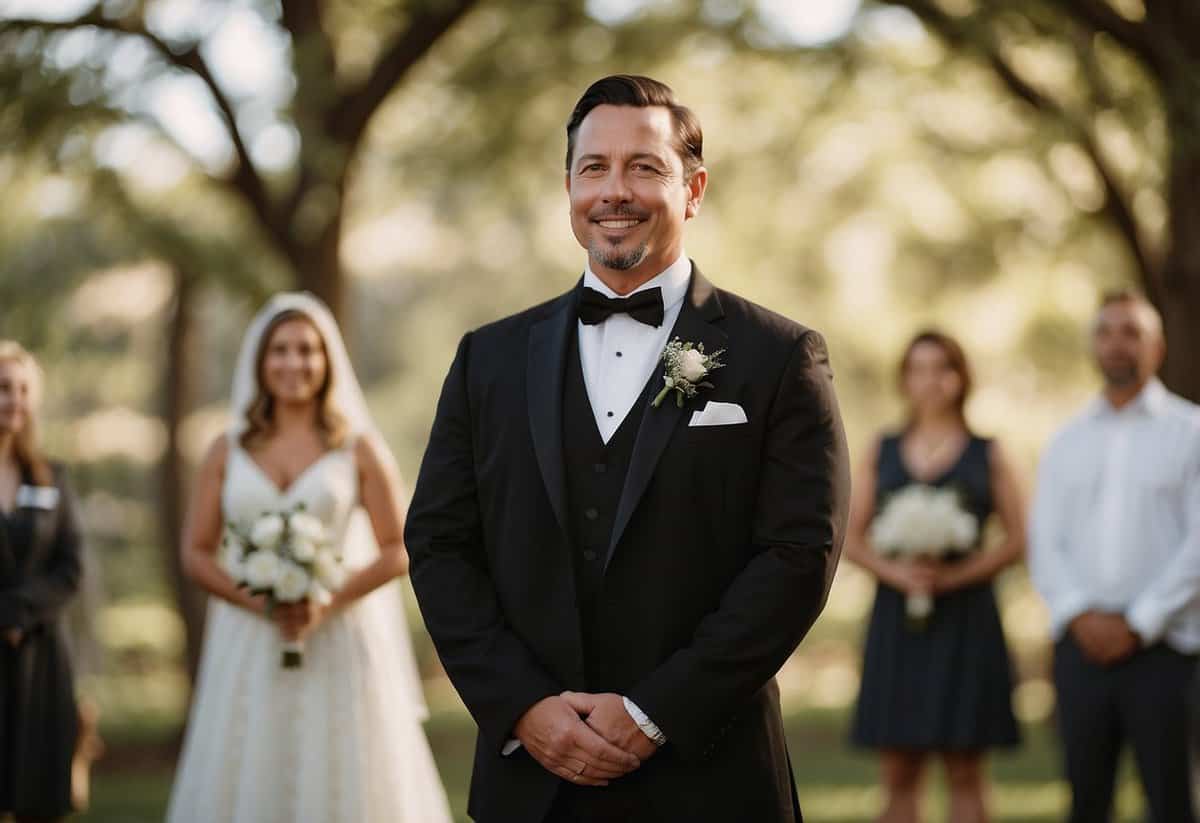
Take deep breaths throughout the day. A simple technique like 4-7-8 breathing can help. Breathe in for four seconds, hold for seven, and exhale for eight. This helps to calm your nerves.
Pad your schedule with extra time. Adding 10 to 15 minutes here and there can help you deal with unexpected delays.
Consider a short meditation or quiet moment before the ceremony. This can center you and reduce stress.
Stay hydrated and eat light meals. Avoid too much caffeine as it can make you jittery.
Remember to stay focused on the couple. Your role is important to them, and being calm helps make their day smooth and memorable.
10) Dress Appropriately
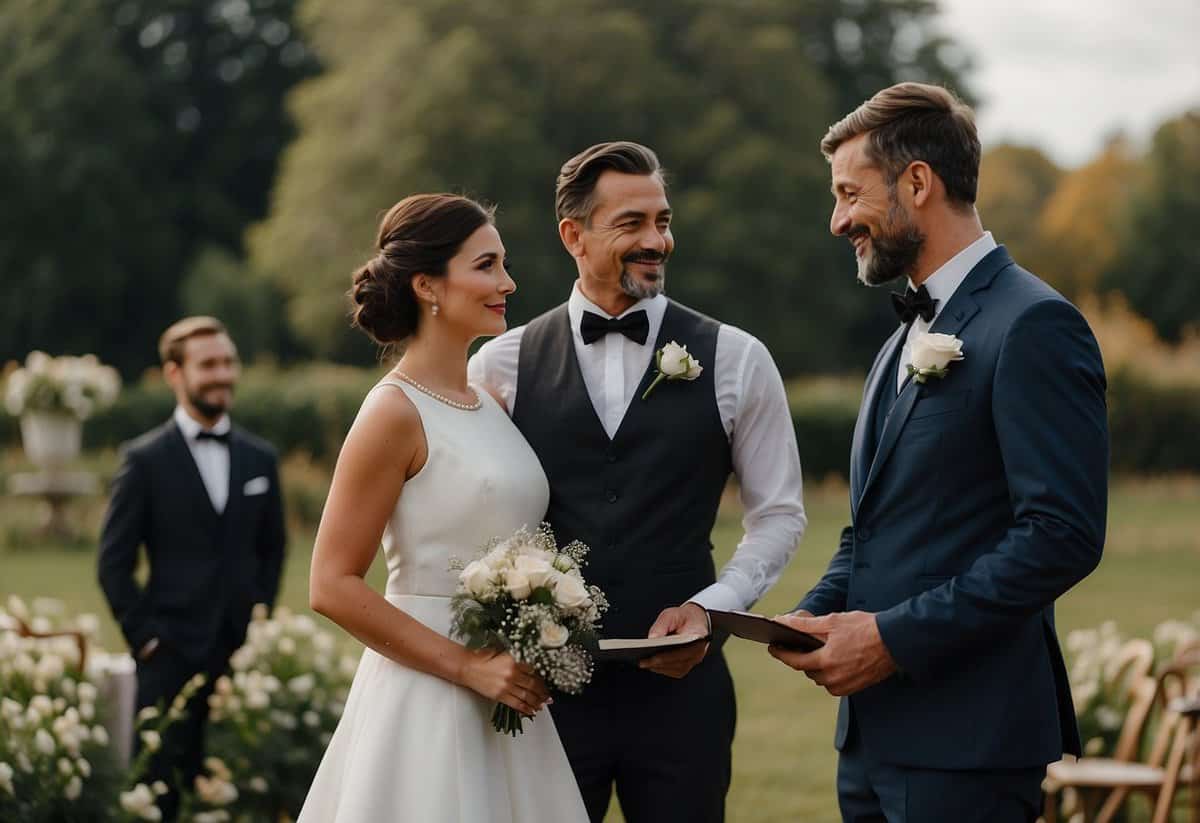
When officiating a wedding, your attire should be respectful and stylish. Pick outfits that match the wedding’s style and setting.
Consider the weather and terrain. For outdoor weddings, light fabrics like cotton or linen are comfortable. For indoor ceremonies, fancier options such as dresses or suits work well.
Avoid overly flashy clothing. Solid colors like beige, black, or neutral tones are great choices. Ensure your outfit complements, not overshadows, the couple’s attire.
Talk with the couple about their preferences. This helps everyone look coordinated and harmonious on the big day.
Understanding Your Role
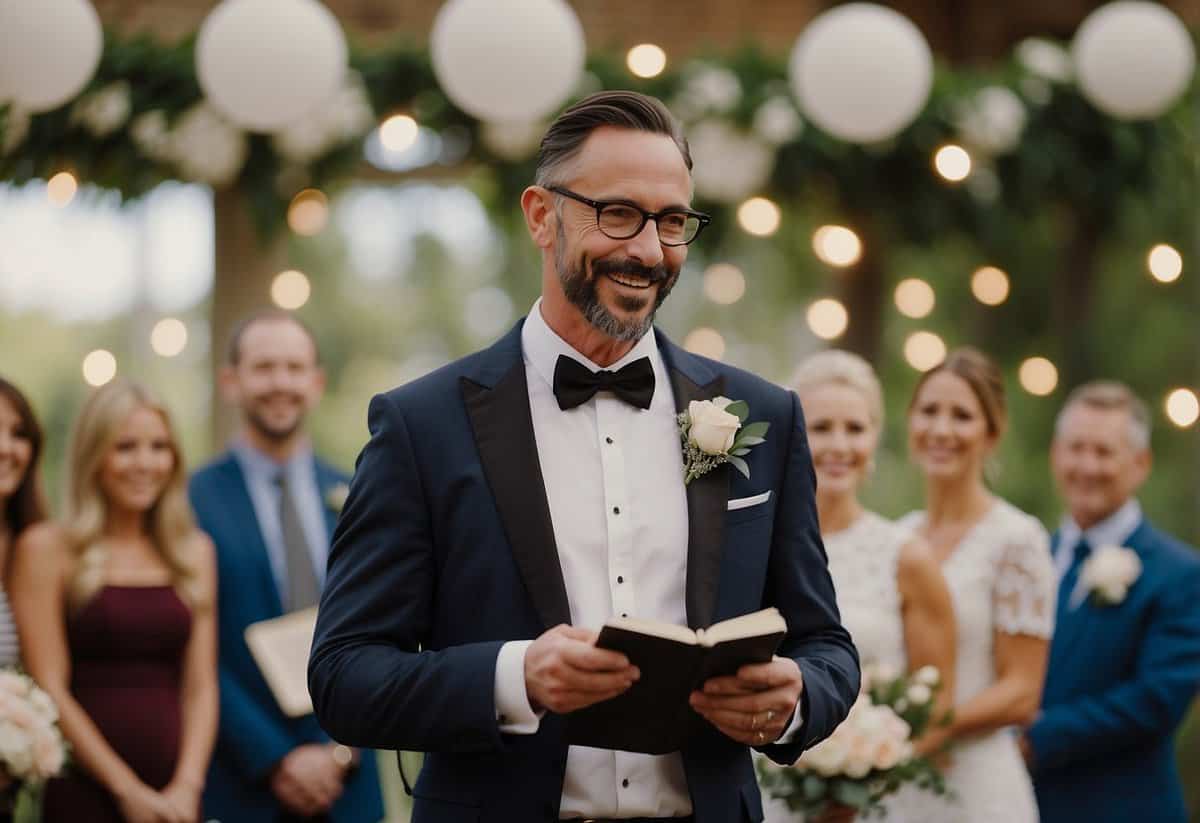
As a wedding officiant, you have two main duties: fulfilling legal obligations and offering emotional support to the couple.
Legal Responsibilities
First and foremost, you must ensure that the marriage is legally valid. This involves being authorized to officiate weddings in your state or country.
Before the ceremony, confirm the legal requirements. This may include a license or registration with local authorities.
During the ceremony, one of your key tasks is signing the marriage license. This document proves the couple is legally married. Make sure it’s filled out correctly and submitted in a timely manner.
Review local laws and consult with the couple to avoid any legal pitfalls. It’s vital to fully understand your legal duties to make the marriage official.
Emotional Support
Being a wedding officiant isn’t just about legalities. You also play a significant role in supporting the couple emotionally.
Talk with them about their love story, special moments, and any inside jokes you can include in your speech. Personal touches make the ceremony more meaningful.
Offer comfort and reassurance, especially if they’re nervous. Your calm presence can help ease any pre-wedding jitters.
During the ceremony, share advice and blessings that resonate with the couple’s journey. Use quotes or sayings that capture the essence of love and commitment.
Creating a Personalized Ceremony

Creating a personalized wedding ceremony is all about making the moment special and unique for the couple.
Incorporating Personal Stories
To make the ceremony feel personal, include stories about the couple’s journey. Talk to the couple and learn key moments in their relationship. You can mention how they met, their first date, or a memorable trip they took together. These small anecdotes make the ceremony feel intimate and special.
When telling these stories, keep them short and meaningful. Choose stories that highlight the couple’s love and shared experiences. Make sure to get their approval before the ceremony to ensure they’re comfortable with what is being shared. Personal stories connect everyone to the couple’s unique journey.
Choosing the Right Readings
Choosing readings that resonate with the couple adds depth to the ceremony. Discuss with the couple what types of readings they prefer. Some may like traditional passages, while others might prefer poems or excerpts from favorite books.
Consider the couple’s personal beliefs and values when selecting readings. It’s also important to think about the tone of the ceremony—whether it should be formal, casual, or somewhere in between. Feel free to suggest a few options and let the couple decide which feels right.
Having meaningful readings that reflect the couple’s relationship makes the ceremony more touching and memorable.


